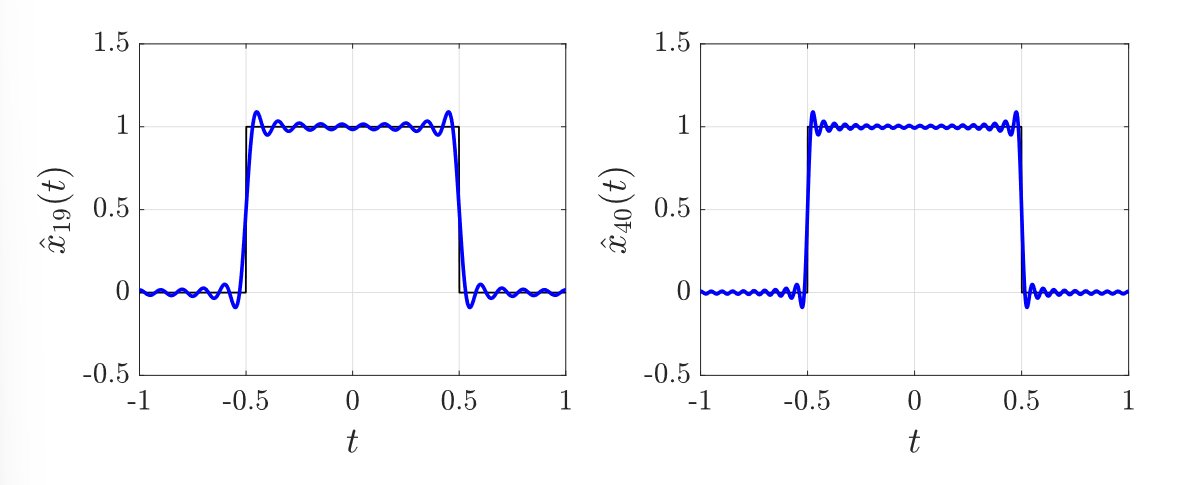The continuous-time Fourier series will converge under a specific set of conditions.
By theorem, if has finite action, , then the Fourier coefficients are well-defined and satisfy:
For an approximation , and an error function , we say that converges to :
- Pointwise at if , i.e., for an infinite number of terms, there is no error.
- Uniformly if , i.e., the amplitude of error goes to 0.
- In energy if , i.e., the energy of the error goes to 0.
Then by theorem, if has finite action, we can deduce about ‘s convergence:
- Pointwise convergence if we’re over time intervals where the signal is smooth.
- At a finite jump discontinuity, the approximation converges at the mid-point of the continuity.
- This is why we can’t perfectly approximate square waves.
- Called Gibb’s phenomenon.
- We can’t represent jump discontinuities, since we basically have there.

If has finite action, and if has a continuous derivative everywhere, then converges to uniformly.
If has finite energy, , then:
- converges to in energy.
- The CTFS coefficients have finite energy, i.e., .
- The signal and its coefficients will satisfy Parseval’s theorem.